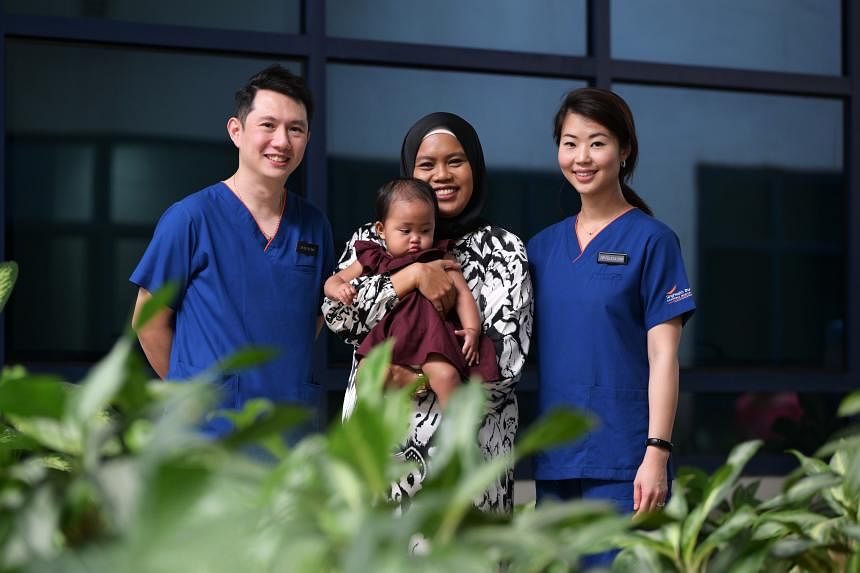SINGAPORE – Ms Yuana Kamsani’s world came crashing down when she was diagnosed with early-stage endometrial cancer in July 2020.
The private tutor, who was 35 at the time, had by then been married for over seven years and had tried to get pregnant. But with the cancer affecting the inner lining of her womb, she saw her chances of becoming a mother evaporating.
The fertility odds were already stacked against Ms Yuana as she suffered from diabetes and was obese.
She was also afflicted with a pre-cancerous condition called endometrial hyperplasia, which had turned her womb lining abnormally thick, making it difficult for her to get pregnant.
Ms Yuana said: “When I was diagnosed with cancer, I felt the world crashing down on me. I thought, ‘Am I going to die?’
“Even if I was cured of cancer… in the end, can I still have babies?”
But a specialised clinic by KK Women’s and Children’s Hospital (KKH) for early-stage cancer patients wishing to preserve their fertility is offering hope to women like Ms Yuana.
As the global incidence of cancer among people below the age of 50 has risen since 1990, KKH has seen more women under 40 with gynaecological cancers over the past few years.
These include endometrial, ovarian and cervical cancers.
The hospital said it had treated about 80 new patients with gynaecological cancers in 2014, whereas it saw over 100 new patients per year from 2019 to 2023.
Dr Felicia Chin, KKH’s senior consultant at the department of gynaecological oncology, said higher rates of obesity and delayed childbearing are behind this rise, among other reasons.
The gold standard for treating early-stage gynaecological cancers is to remove the reproductive organs, but that would mean many women having to give up hope of having their own children.
Dr Chin pointed out that with advancements in cancer care, survival rates are improving and younger patients may end up living for a long time.
“Invariably, they will have thoughts of having a family.
“So we are trying to minimise a situation where patients realise that they can’t because they had their reproductive organs removed,” she said, adding that that is why conversations around fertility preservation for this group of patients are important.
To meet that need, KKH set up the OncoFertility Clinic in September 2020. Since then, the clinic has seen about 200 patients, with the youngest being a 14-year-old and the oldest being 45.

